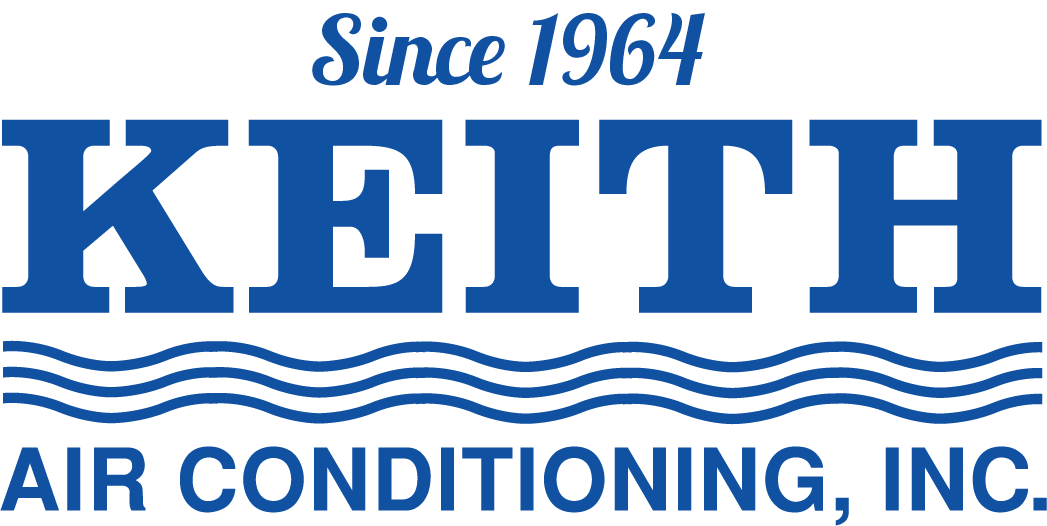Don’t Let Poor IAQ Get You Down: Clear the Air and Breathe Easier
 Mobile has always been a city of change, and our area’s climate is evidence of that. From airborne ragweed to unhealthy smog levels to heat waves, Mobile’s air quality and temperatures rise and fall as often as the Gulf tides. Amazingly, though, Mobile area residents often have less to worry about with the outdoor air quality than with the poor indoor air quality (IAQ) of their own homes.
Mobile has always been a city of change, and our area’s climate is evidence of that. From airborne ragweed to unhealthy smog levels to heat waves, Mobile’s air quality and temperatures rise and fall as often as the Gulf tides. Amazingly, though, Mobile area residents often have less to worry about with the outdoor air quality than with the poor indoor air quality (IAQ) of their own homes.
What Is Poor IAQ?
Indoor air quality is a measure of the healthfulness of the air you breathe inside your own home. If your home’s HVAC system is not operating at peak efficiency, or you have deferred regular maintenance of ductwork and equipment, you may be suffering from poor IAQ.
Signs of Poor IAQ
The major symptoms of poor IAQ fall into two general categories: people are affected, and your HVAC equipment is affected. Consider the health of your family over the past year and think of these issues:
- Do allergy sufferers feel worse when inside your home than when they are outside?
- If anyone living in your home has a compromised respiratory system (especially the very young or very old), are they sick frequently, or improve when away from home?
- Do visitors or extended family have breathing issues when inside your home?
- Do you suffer from headaches, shortness of breath, tiredness or irritated sinuses and eyes?
- Do you see mold, mildew or gritty matter on surfaces in your home?
Think about the condition of your central air conditioner or furnace:
- Do you schedule regular maintenance and inspection, including frequent filter changes?
- Is your system more than a decade old?
- Have your ducts ever been cleaned?
- Are your ducts sealed?
- Has your electricity bill climbed noticeably in recent years during air conditioning season?
- Has your professional HVAC technician warned you that your equipment is aging prematurely?
Causes of Poor Indoor Air Quality
Poor IAQ may seem like something we in the Mobile area have to accept. Our average humidity is 73 percent; even our average low humidity only dips down to 55 percent. With that much moisture in our air, poor IAQ might appear to be a natural consequence. Dust mites, for example, thrive in high humidity conditions. Mold and mildew grow readily where moisture deposits. Other causes of poor IAQ include:
- Pet dander (dead skin cells sloughed off your dogs and cats) are small enough and light enough to get airborne.
- Irritating gases in the air from the kitchen stove and indoor combustion appliances such as wood stoves, gas water heaters, furnaces and decorative fireplaces.
- Human skin cells wafting in the airstream.
- Dirt and sand tracked in on human feet and pets’ paws.
- Particulates lodged in dirty ductwork.
- Volatile organic compounds (VOCs) from personal cleansing products such as perfumed soaps and shampoos; from household cleaning products; from detergents used in the dishwasher and clothes washer; and from upholstery, paints and stains inside your Mobile area home.
- Dust mites living on pillows and mattresses, and in upholstered furniture; their leavings and dead exoskeletons become airborne and people breathe them in.
Solving Poor IAQ
Fortunately, Mobile area homeowners have plenty of defenses – high tech and low tech – to use against poor IAQ. Some quick steps you can take right now include asking everyone to remove shoes at the door, vacuuming wood floors daily and shampooing carpets weekly with plain water, banning smoking inside, changing your central air conditioner’s filter every month (or cleaning it if’s a permanent filter), and reducing use of perfumed or scented products.
Hiring a professional HVAC contractor to work with you is a great second step. Some of the areas a professional can address are:
- Duct sealing to prevent air leaks
- Cleaning and maintaining central air conditioning equipment
- Installing high-efficiency particulate air (HEPA) filters
- Installing electrostatic air filters
- Dehumidifying your home’s indoor air
- Recommending a dedicated air purifier that will help resolve your indoor IAQ issues
You do not have to wait for a professional HVAC technician to help you, though, because simply running your home’s central air conditioner should improve the air quality and lower humidity. A lot of indoor pollutants are water soluble, so reducing moisture in your home reduces the amount of pollutants. Mold and mildew, for example, cannot get a foothold in low humidity. Dust mites thrive at humidity levels above 50 percent, but begin dying off when the humidity drops to 35 percent. Cooler air is cleaner air.
For more help identifying the sources of poor indoor air quality, and finding helpful solutions to poor IAQ in your Baldwin County home, please contact us at Keith Air Conditioning, Inc.
